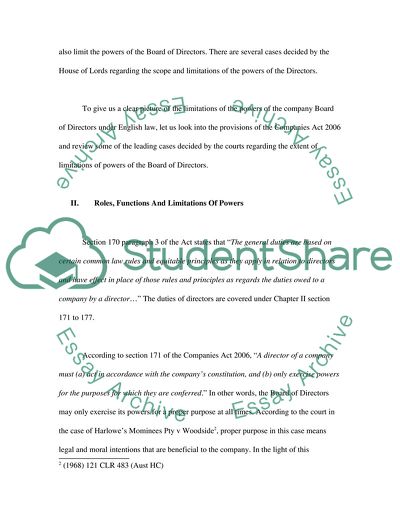Cite this document
(“The Powers of the Company Board of Directors Under English Law Research Paper”, n.d.)
The Powers of the Company Board of Directors Under English Law Research Paper. Retrieved from https://studentshare.org/law/1562493-law-essay
The Powers of the Company Board of Directors Under English Law Research Paper. Retrieved from https://studentshare.org/law/1562493-law-essay
(The Powers of the Company Board of Directors Under English Law Research Paper)
The Powers of the Company Board of Directors Under English Law Research Paper. https://studentshare.org/law/1562493-law-essay.
The Powers of the Company Board of Directors Under English Law Research Paper. https://studentshare.org/law/1562493-law-essay.
“The Powers of the Company Board of Directors Under English Law Research Paper”, n.d. https://studentshare.org/law/1562493-law-essay.


